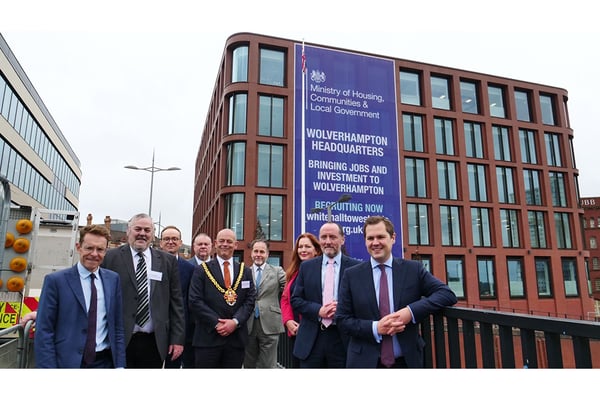Digital mapping tool to tackle food inequality in Liverpool
A government-backed digital mapping project in Liverpool is at the heart of a new national effort to combat food poverty and inequality across the UK.
Announced this week by Science and Technology Secretary Peter Kyle, the initiative is one of six schemes receiving a share of £8.5 million in funding aimed at improving access to nutritious food for vulnerable communities.
The Liverpool project will develop a digital tool to identify and map areas where residents of social housing have limited access to fresh fruit and vegetables. This data-driven approach will guide the route of the Queen of Greens mobile greengrocer - a bus that has been bringing affordable produce to underserved communities in Liverpool and Knowsley since 2022. .jpg?width=400&height=225&name=food%20inequality%20(1).jpg)
The new technology will allow the Queen of Greens to expand and refine its reach, ensuring it visits those areas where the need is greatest. The project, led by researchers from the University of Liverpool in partnership with Alchemic Kitchen CIC, also includes a pilot voucher scheme in collaboration with the Alexandra Rose Charity. Residents will be given fruit and vegetable vouchers to use on the Queen of Greens bus, with the health impacts of these purchases monitored over time.
“This is a great opportunity to trial support for social housing tenants to access fresh produce and to have the health and social impact measured and assessed,” said Lucy Antal, director of Alchemic Kitchen CIC. “The Queen of Greens is for everyone, and the data produced will help support our future activity.”
The research team will use computer modelling to predict the wider health and social benefits if similar schemes were rolled out nationally. The findings are expected to inform future policy on tackling food inequality and promoting healthier diets.
Peter Kyle emphasised the significance of using science and technology to address deep-rooted inequalities. “No one in this country should be left unable to access the healthy food they need. Projects like the Queen of Greens can have a transformational effect on people’s lives,” he said.
The Liverpool initiative is part of a broader suite of UK Research and Innovation (UKRI)-funded projects under the government’s Plan for Change and its new 10 Year Health Plan. These plans aim to build a fairer society by making healthy living more accessible, particularly for those in deprived areas.
Other funded projects include public restaurant pilots in Dundee and Nottingham, community food market initiatives in Glasgow, efforts to boost the quality of food pantries on the Isle of Wight and in Southampton, a review of free school meal nutrition in Wales, and workshops across England to help local councils address food inequality at the policy level.





